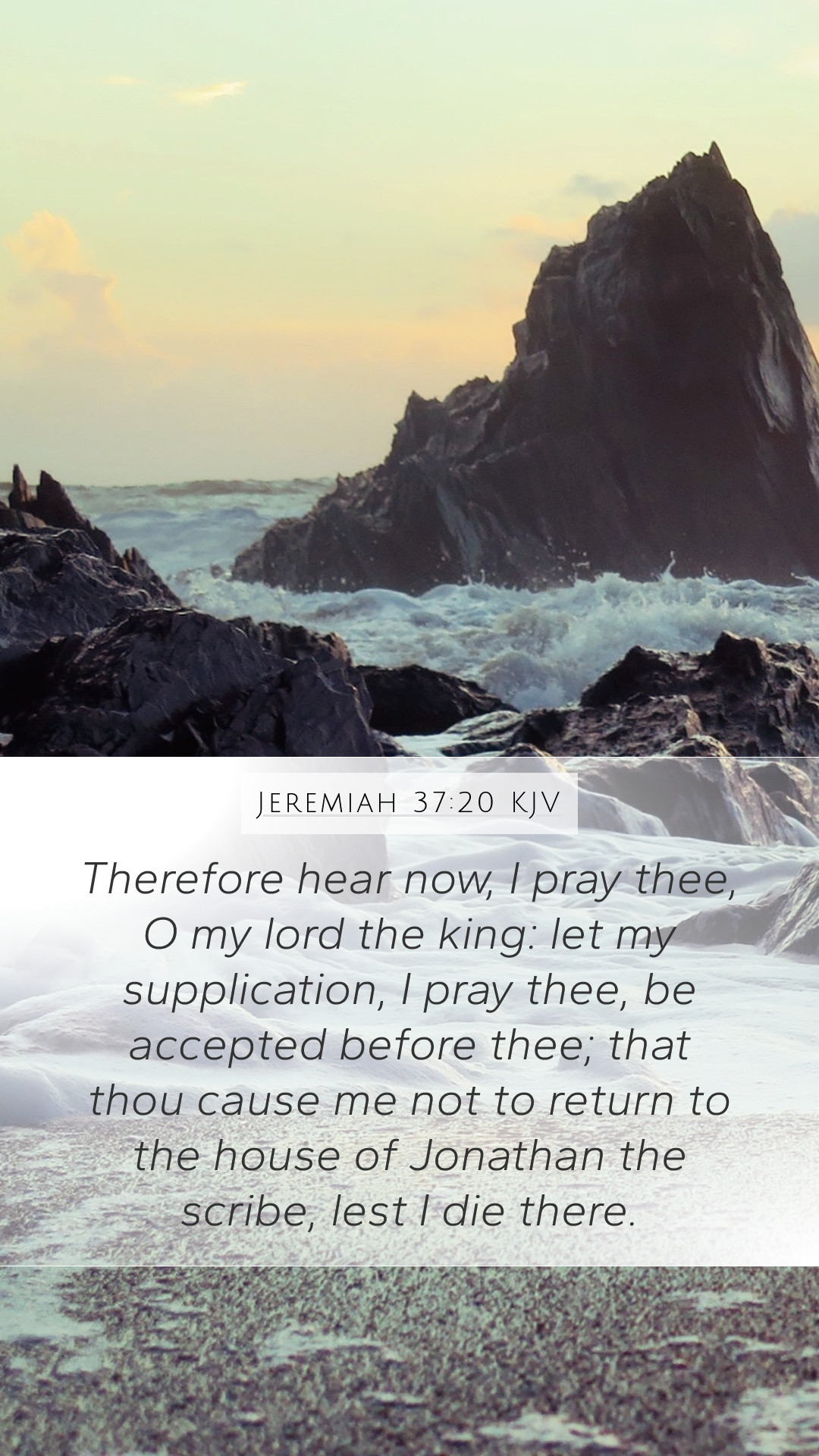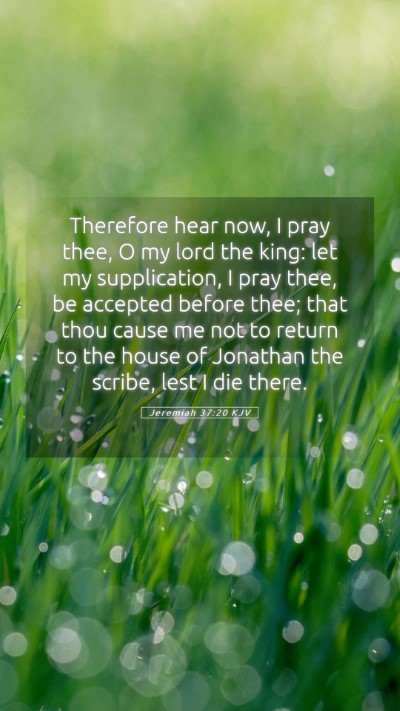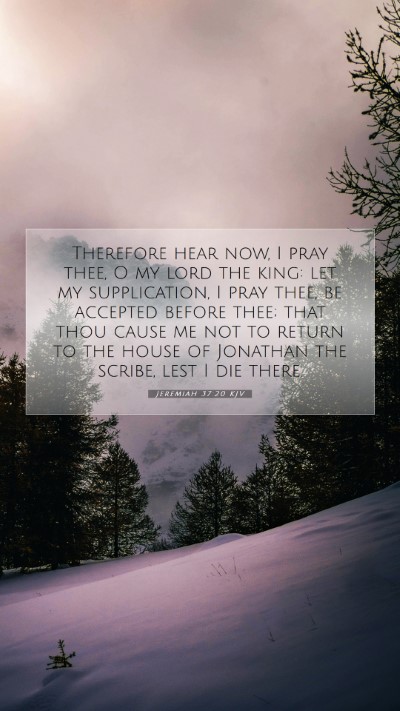Understanding Jeremiah 37:20
Jeremiah 37:20 is a profound verse that carries significant meanings and implications for understanding the nature of divine communication, prophecy, and the plight of Jeremiah during his prophetic ministry. This verse serves as a critical point in the narrative of Jeremiah, demonstrating the tension between God's messages through His prophet and the reactions of those in power. Below, we summarize the interpretations derived from renowned public domain commentaries, providing insights into the verse's meanings, explanations, and applications.
Bible Verse Content
Jeremiah 37:20 (KJV): "But now, O Lord my God, deliver me, I pray thee, out of the hand of the people of Judah, and out of the hand of the king of Israel, and out of the hand of the king of Babylon, for I am in distress."
Summary of Insights
- Desperation and Prayer: Matthew Henry emphasizes Jeremiah's earnest plea to God, highlighting the prophet's vulnerability in the face of hostility from both the Judean rulers and the Babylonian powers.
- Context of Suffering: Albert Barnes points out that this moment is one of intense suffering for Jeremiah, who, despite being a messenger of hope, finds himself imprisoned and surrounded by hostility. His prayer reflects a deeper understanding of the prophetic burden he carries.
- Divine Deliverance: Adam Clarke views this plea as not just a cry for personal rescue but a reminder of God’s earlier promises of protection and mercy during tumultuous times. This highlights the importance of seeking divine intervention in moments of distress.
- Human Authority vs. Divine Will: The verse puts a spotlight on the struggle between earthly powers and divine authority. The references to the different rulers encapsulate Jeremiah’s acknowledgment of the limitations of human governance against God’s sovereign plan.
- Intercessory Role: Jeremiah's role as a prophet includes intercessory prayer for his people, showcasing the duty to pray for deliverance amid national calamity and personal hardship, as reiterated by Henry.
Historical and Theological Context
The historical context of Jeremiah's ministry was fraught with political instability, as the Judean nation was under threat from Babylon. Theological principles illustrated in this passage include themes of lamentation, the need for divine help, and the dynamics of prophecy amidst persecution. These principles continue to resonate in spiritual discussions and Bible studies today.
Application of the Verse
This verse speaks to modern readers about the importance of turning to God in prayer during times of trouble. The themes of distress and reliance on divine intervention are relevant in various life circumstances, reminding believers to seek refuge in God regardless of external pressures.
Related Bible Verses
- Psalm 50:15: "And call upon me in the day of trouble: I will deliver thee, and thou shalt glorify me."
- Isaiah 41:10: "Fear thou not; for I am with thee: be not dismayed; for I am thy God: I will strengthen thee; yea, I will help thee; yea, I will uphold thee with the right hand of my righteousness."
- Luke 18:1: "And he spake a parable unto them to this end, that men ought always to pray, and not to faint."
Conclusion
In summary, Jeremiah 37:20 serves as a poignant reminder of the need for divine assistance in challenging times and reflects the critical relationship between divine will and human hardship. Understanding this scripture through various commentaries provides valuable insights for personal Bible study and enhances our comprehension of the complexities in the lives of biblical figures.
SEO Optimization
This analysis incorporates essential keywords relevant to various topics, such as bible verse meanings, bible verse commentary, and bible study insights. Those engaging in bible study groups or seeking online bible study tools will find this interpretation particularly enlightening, aiding their understanding and application of difficult biblical passages.


